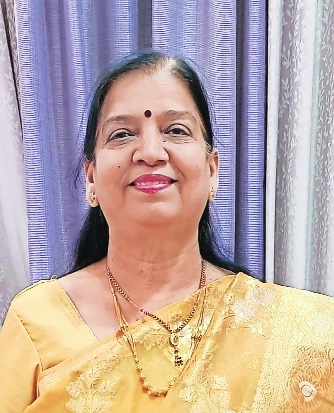Varadaan’s Padole discusses complexities behind the adoption journey in India
| Date :30-Nov-2024 |

Pallavi Padole
By Vaishnavi Pillay :
INTERVIEW
Child adoption is a life-changing journey, offering children without families a chance to belong and thrive. Over the years, the adoption system in India has evolved, with streamlined processes and societal awareness for this noble approach. However, the road to adoption is not without hurdles. Complex legal requirements, lengthy waiting periods, and emotional challenges often make the process daunting for adoptive parents.
To understand these pressing issues better, ‘The Hitavada’ spoke with Pallavi Padole, who heads Varadaan, a non-commercial child adoption centre in the city, associated with parent organisation Indian Association for Promotion of Adoption (IAPA), Mumbai. Being dedicated to adoption work since 1992, Padole sheds light on the realities of adoption in today’s world.
She said that with the establishment of the Central Adoption Resource Authority (CARA) in 2015, the process has become centralised. “We register a child twice on CARA, first by documenting details within 24 hours of arrival at adoption centre. Second registration is done when no relatives come forward to claim the child even after two months. The case is then taken to the Child Welfare Committee for further directives and to make the child eligible and free for adoption,” mentioned Padole. She added that if a biological mother, whether married or unmarried, abandons her child, there is a mandatory reconsideration period of two months, even for her relatives.
She stated that the centralised online system was introduced to ensure fairness and transparency, as children in rural areas often remained without families due to fewer adoption from those regions, but it brought its own challenges.
“The major issue of adoption in India is the long waiting list, which, on average, is three and a half years. Additionally, prospective parents need to upload several scanned documents online, so many families struggle with the digital nature of the process,” she stated.
Options like visiting internet cafes fall short since follow-up like checking emails remain unmanageable.
Consequently, due to long waiting list, illegal adoptions have surged. Padole highlighted that adoptive parents bypass the system, and in hospitals, agents manipulate unmarried mothers dealing with unwanted pregnancies with promises of secrecy and support, steering them away from official channels.
Prospective adoptive parents trust intermediaries claiming to handle the legal process. Padole pointed out that many of these legal procedures merely involve notarised documents instead of proper court orders, leading families unknowingly believing they have adopted legally.
Adding to this, she said, “These agents often convince biological mothers into demanding more money from adoptive parents, even after initial agreement. If adoptive parents refuse, the biological mother files police complaint claiming her child was forcibly taken. This escalates into allegations of child trafficking, leading to that child being removed from adoptive parents’ homes and placed in an adoption centre.”
Padole also stressed on the rising cases from the Protection of Children from Sexual Offences (POCSO) Act, involving minor girls who conceive or deliver babies. As such cases must be reported to the police, this often deters families from coming forward due to the fear of exposing their daughters, and families abandon the infants, either by leaving them in unsafe places or giving them away to anyone.
To address the issue of
child abandonment, CARA
and adoption centres like Vardaan have implemented an initiative to set up a cradle
outside their centre for those who wish to anonymously leave their child. “Circulars were
sent to all hospitals and nursing homes to adopt this cradle
practice, to avoid child abandonment on roads or temples.
The procedure involves informing the police, but parents’ identity is not pursued,” asserted Padole.
She urges gynaecologists to ensure ethical practices, especially in cases of unmarried mothers, by verifying identities through Aadhaar cards of mother, her father, and her husband, because many unmarried women have been found putting their father’s name as their husband’s name, while getting admitted to a hospital.
Padole reassures parents who often worry about baby’s background that while heredity does play a role, the environment in which a child grows has a major impact. “One can shape a child’s personality significantly with right environment, exposure, and care. Also, an adoption should not be disclosed to a child abruptly or through external sources, but through age-appropriate stories of figures like Lord Krishna,’ she said.
She explained that while adoptive parents begin with positive intentions, challenges arise as expectations start to form. “Children may have behavioural differences, some may resist being fit into a structured family life. This transition requires patience, adoptive parents need to embrace the child as they are,” concluded Padole.